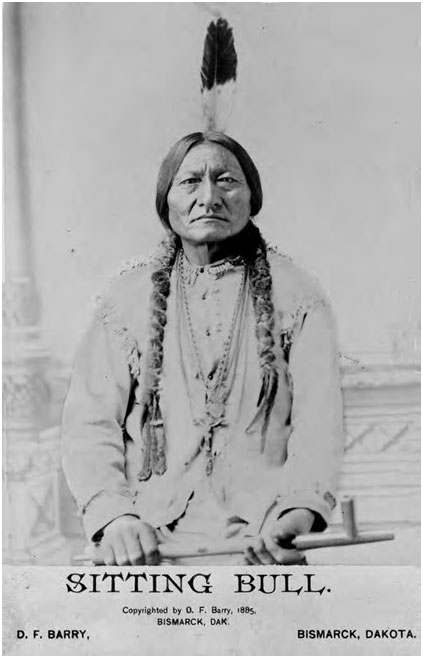Lincoln Idealist and Pragmatist - The Story of Abraham Lincoln - Chapter VI
CHAPTER VI
After Lincoln
The search for Lincoln’s assassin, lead the police to his hideout near Washington; on April 26th 1865, Booth was killed while trying to escape. Eight of his accomplices were caught; four were subsequently hanged.
Fighting still continued in small areas of the West, Louisiana, Mississippi and Alabama. Jefferson Davis was captured on May 10th; by the end of May, the last confederate army had surrendered. During the civil war, more than 600,000 soldiers had been killed and 300,000 had been wounded.
Most of the south was destroyed during the civil war; farms, plantations and buildings had been burned down and crops destroyed. Confederate money was now worthless. The economy of the south was wrecked; Federal troops occupied southern states during reconstruction to ensure that laws were followed and no more uprisings took place. It was a big task; roads had to be rebuilt, plantations and farms had to be restarted, schools had to be set up for black children. Reconstruction was a tardy and labyrinthine process; one which did not do justice to
Lincoln’s vision.
As Lincoln had predicted, the Southern whites were not yet ready to accept blacks into their society. Between 1865-1866 many southern states passed Black Codes — laws to prevent blacks from going to school, owning land, voting, and getting jobs. They wanted to prevent the blacks from rising in society; they wanted to keep them as labour on very low wages. Though blacks attained liberation, racial equality remained a distant dream, which would not be fulfilled until a century later.
Tennessee was the first state to be readmitted to the Union in 1866 and the last state was Georgia in 1870. During reconstruction that took place between 1865-1877, republicans passed four civil rights bills to protect the rights of African-Americans, the first being the 13th Constitutional Amendment that abolished slavery in 1865.
In 1866, Congress passed the 14th Amendment also called the Civil Rights Act that granted citizenship to African-Americans but not the right to vote.
In 1869, Congress passed the 15th Amendment giving African American males the right to vote.
In 1875, Congress passed the Civil Rights Act that guaranteed African-Americans equal treatment in public accommodations, public transport and prohibited exclusion from jury duty. But in 1883, Supreme Court ruling declared it unconstitutional.
In 1876, when Democratic strength increased in Congress and gained control of Southern state legislatures, they blocked additional progress and began to repeal civil rights laws.
In 1896, Democrats in Louisiana passed ‘grandfather clauses’, which were devious and crafty means like literacy tests and poll taxes to dodge the voting protection granted to African-American men in the 15th Amendment. They installed numerous such measures to prevent prior slaves and their descendants from voting. It stated that those who enjoyed the right to vote before 1866 would be exempt from educational, property, or tax requirements for voting. Since the former slaves did not get enfranchisement till the 15th amendment in 1869, these
clauses worked to exclude blacks from voting and encourage enfranchisement among the poor and illiterate whites. Resultantly, there was a sharp drop in registered black voters from 44.8% to 4.0% by 1900. Louisiana’s example was followed by other Southern states, — Mississippi, South Carolina, Alabama and Virginia to enact their own ‘grandfather clauses’.
With a result, only 3% blacks were registered to vote by 1940.
In August 1963, one hundred years after the Emancipation Proclamation had been issued, Martin Luther King, Jr. stood on the steps of the Lincoln Memorial and delivered his famous speech, ‘I have a Dream...’ to press for racial equality in American society.
In 1964, Congress passed the 24th Amendment prohibiting poll tax in elections for federal offices, thereby facilitating African American enfranchisement.
To protest for African-American voting rights, in 1965, 500 non-violent civil rights activists marched from Selma to Montgomery, Alabama. The police used tear gas and clubs to beat up the protestors and drove them back to Selma. The attack was shown on television and triggered a national outcry. After securing court protection, Martin Luther King lead more than 3000 protestors from Selma with the strength growing to over 25,000 by the time he reached Montgomery. President Lyndon Johnson denounced the attack as ‘deadly wrong’.
In 1965, Congress passed The Voting Rights Act, permanently prohibiting hurdles (literacy tests, poll taxes and non-registration of African-American voters) that prevented African-Americans from exercising their right to vote under the 15th Amendment. This Act markedly expanded the franchise and is deemed as a landmark in the history of U. S. civil rights legislation.

Native Americans: Sitting Bull, Lakota tribe, holy man and chief
Related Books
- Alexander the Great
- Arguments for The Existence of God
- But it is done
- Catherine The Great
- Danton
- Episodes from Raghuvamsham of Kalidasa
- Gods and The World
- Homer and The Iliad - Sri Aurobindo and Ilion
- Indian Institute of Teacher Education
- Joan of Arc
- Lenin
- Leonardo Da Vinci
- Lincoln Idealist and Pragmatist
- Marie Sklodowska Curie
- Mystery and Excellence on The Human Body
- Nachiketas
- Nala and Damayanti
- Napoleon
- Parvati's Tapasya
- Science and Spirituality
- Socrates
- Sri Krishna in Brindavan
- Sri Rama
- Svapnavasavadattam
- Taittiriya Upanishad
- The Aim of Life
- The Crucifixion
- The Good Teacher and The Good Pupil
- The Power of Love
- The Siege of Troy
- Uniting Men - Jean Monnet